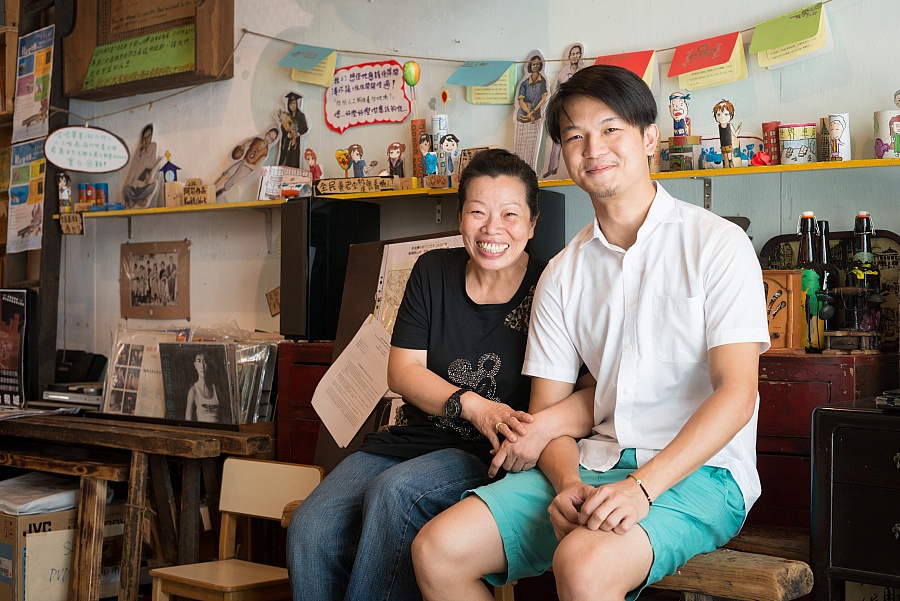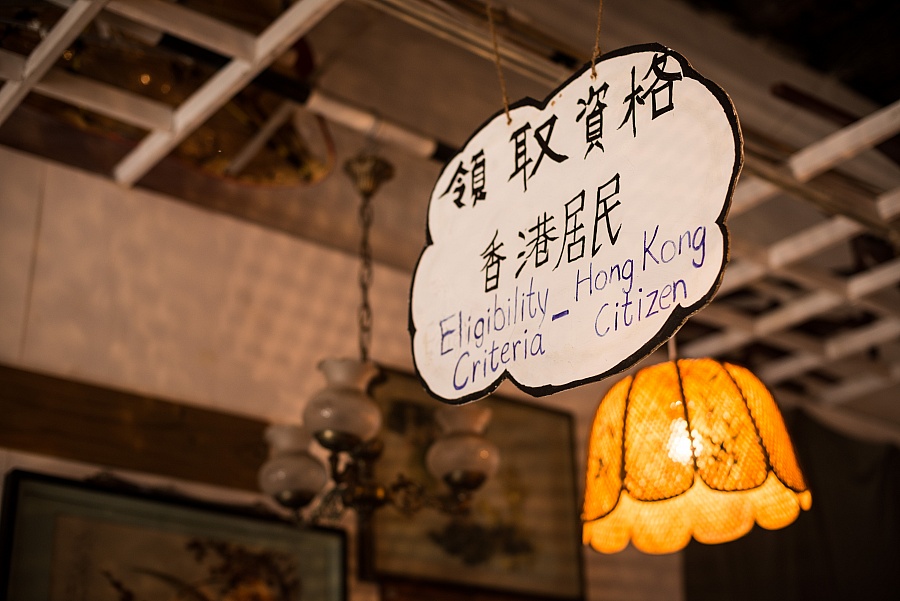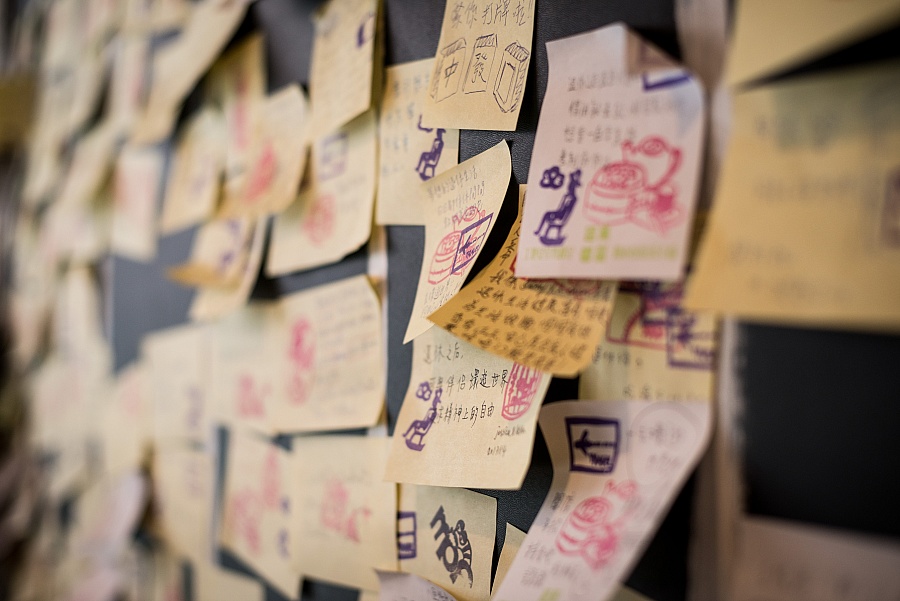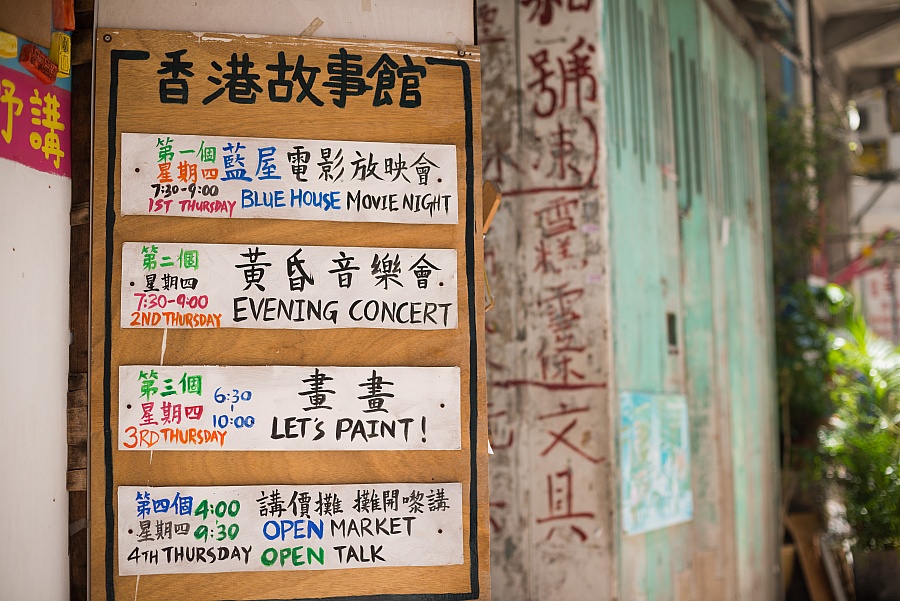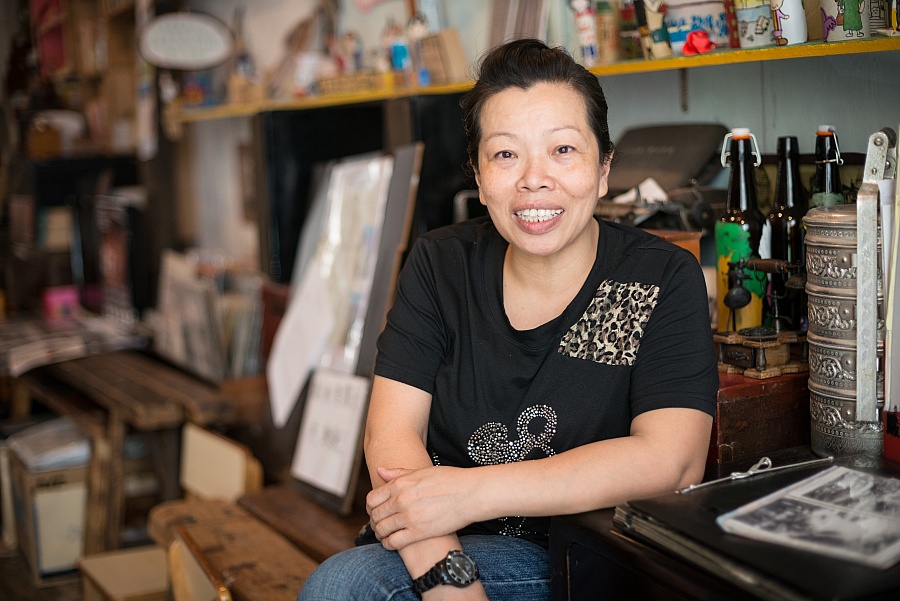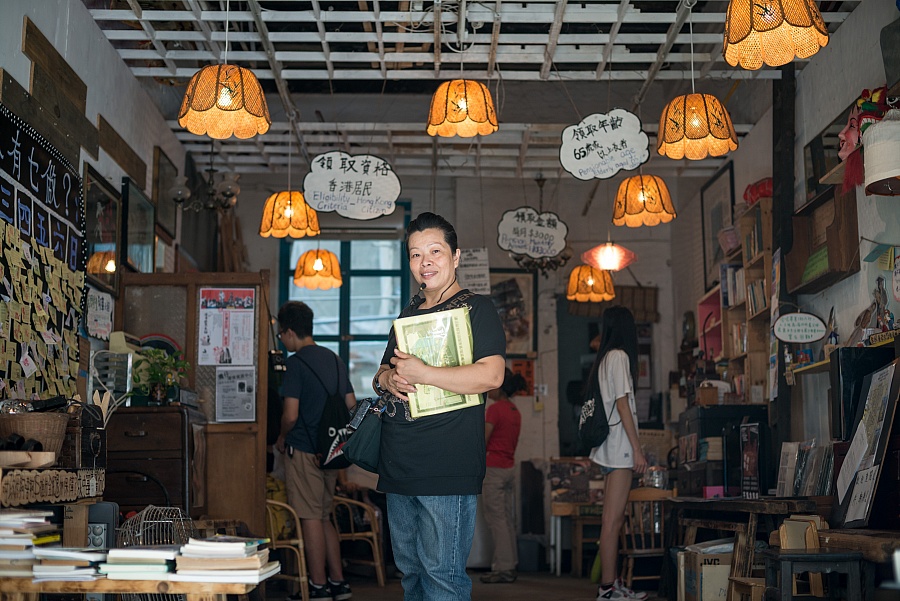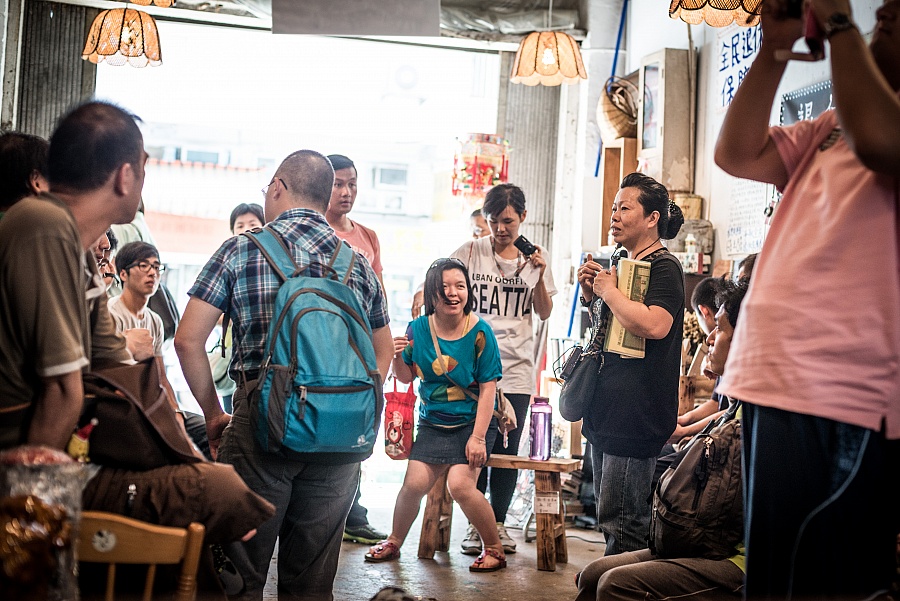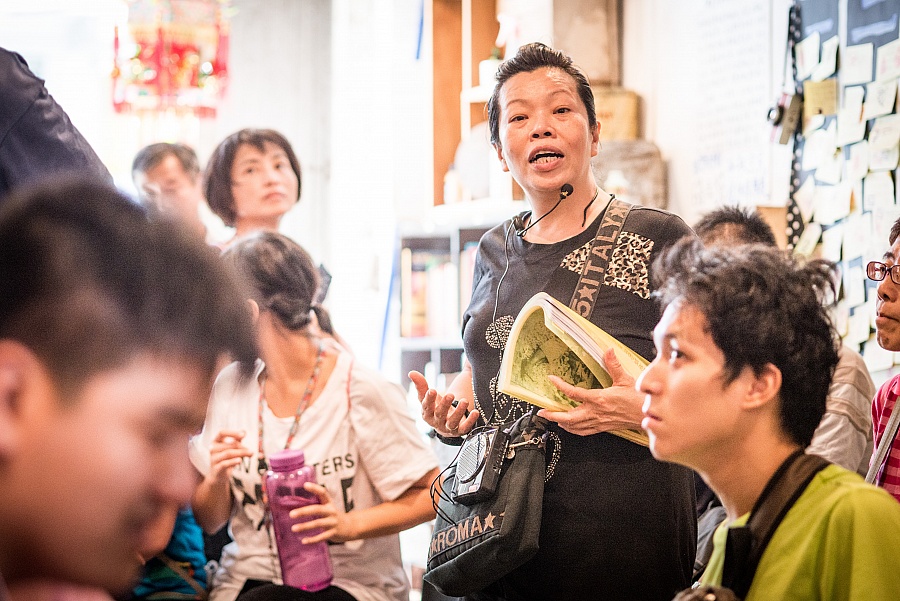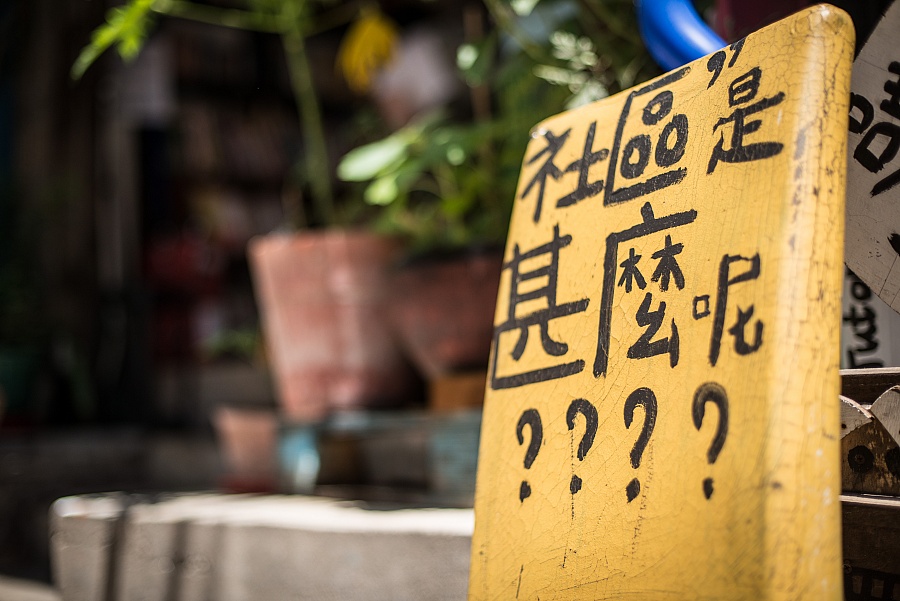When in a rush, Wong Sau-ping avoids Tai Yuen Street. The street runs between Johnston Road and Queen's Road East, and is known locally as "Toys Street". It is where Hongkongers shop for toys that bring back happy childhood memories. For Sau-ping, it is where many of her long-time friends run their business.
My response is that I avoid meeting Sau-ping if I can't afford having a long dinner.
Sau-ping loads every gathering with stories of old Wan Chai. As a result, even simple dinner tends to last for four to five hours. Food finished, table cleaned, dessert come and eaten, but I am still hooked to myths she had gathered over the years. I took home eight stories of Wan Chai at the end of our recent gathering – tales ranging from jargons used in pawn shops, a shootout on St Francis Street and ghost stories.
Wong Sau-ping retired 10 years ago. Since then, she spends much of her time volunteering for the St James' Settlement charity. This regular-looking seelai (middle-aged housewife) is a star in her own right. Sau-ping is a storyteller. Her brain is full of myths and legends of Wan Chai that have escaped the written records. Whatever topic I bring up, as long as it is related to Wan Chai, she is bound be able to tell at least one story. Sau-ping's storytelling is effortless, as if the stories are part of her genes.
Sau-ping's stories are told at private gatherings, but also during cultural tours she leads. Themes of the tours stretch from ghost stories, conservation, food, entertainment, ritual, cinema, coastline to industries and street history. The streets of Wan Chai are her stage; visitors on the cultural tours are her audience. She uses the art of storytelling, takes the audience back to a Wan Chai which has now largely disappeared in the face of rapid development. Storytelling is her way to influence the heart and mind of the younger generation.
"Conservation must be based on appreciation. But appreciation cannot be brewed through arrogance. Buildings less than 50 years old will not be preserved but without 50-year-old buildings, how are we going to have 100-year-old buildings? Sometimes buildings get preserved but it leads to gentrification, edging out long-time residents and business," she said.
When it comes to traditional industries in Wan Chai, Sau-ping recalls the story of an auto-repair shop on Stone Nullah Lane. This repair shop would turn into a dance-floor in the evenings as the workers in the shop were young men who, like young men nowadays, wanted to have fun. The shop is no longer a dance-floor now, because the young men have grown up, married and have their own families. "I hope through this story, more people understand the survival of an auto-repair shop affects the welfare of several families," she said.
Sau-ping never set out to deliberately collect stories. They come either from her own experience, or bits and pieces she has picked up as a long-time resident of Wan Chai.
In an era of travelling across the globe for study, work, sightseeing and immigration, Sau-ping often jokes that she hardly went beyond Stone Nullah Lane and Queen's Road East in the first 30 years of her life.
Sau-ping's father was a carpenter, his clients included Wan Chai kaifong (local residents), Wah Yan College and the British garrison in Admiralty. Her mother was a vegetable vendor at the old Wan Chai Market. As a child, Sau-ping frequented her mother's stall, where she got acquainted with other vendors at the market. She helped her father-in-law run the family's dai pai dong (outdoor food stall serving inexpensive local cuisine) on the junction of Tai Yuen Street and Queen's Road East. She was once a newspaper vendor, selling newspapers at the doorstep of Wan Chai's landmark Lung Moon Restaurant on Johnston Road.
Sau-ping thinks her time at the dai pai dong was the period she picked up most of her stories. "Our customers ranged from seelai to construction workers, triad members to white collar," Sau-ping said, adding that they were both loyal and helpful. "Some would help to make beef balls when they saw I was super busy; some helped on greeting other diners."
A dai pai dong runs on a three-shift basis so it can serve breakfast, lunch and dinner, running until the early hours of the next day. In the evenings, the dai pai dong always turned into a city-forum echoing with kaifong chatter and debate. The mid-1980s was the golden days of the family dai pai dong. The family surrendered the license to the government after changes in policy made it increasing difficult to run the business.
Allocated public housing in Ap Lei Chau, Sau-ping moved to the Southern District 10 years ago. But she continues to travel to Wan Chai nearly every day for her volunteering commitments.
"I am hooked on Wan Chai. In the old district, even the streets and the buildings have souls, and the people are friendly," she said. Deeply attached to Wan Chai, Sau-ping uses the stories she picked out over the years to conserve the area.
